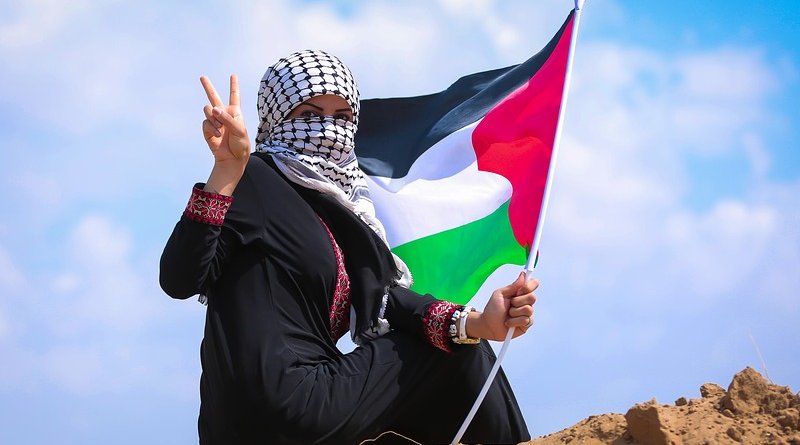New Solution Needed To Protect Palestinian Refugees’ Fights – OpEd
By Ramzy Baroud
Refugees, regardless of their race, ethnicity or religion, should be treated with respect and dignity, no matter the political complexity of their host countries. Palestinian refugees are no exception.
The Palestinian Association for Human Rights last month called on the UN to provide financial assistance to Lebanon’s Palestinian refugees, indicating that, due to the coronavirus pandemic, a whopping 90 percent of them had lost their jobs. Under discriminatory Lebanese laws, Palestinian refugees are barred from dozens of jobs that are available to Lebanese nationals. This is just one of many such restrictions. Thus, Palestinian refugees in Lebanon (the vast majority of whom are now unemployed) compete within a very limited jobs market.
A large number of these refugees have been employed in the various projects operated by the United Nations Relief and Works Agency (UNRWA). Meanwhile, many of those who were lucky enough to receive university degrees opted to leave the country altogether. However, due to the coronavirus, the severe financial hardship suffered by UNRWA and new Lebanese government regulations, all doors are now being shut in the face of the Palestinian refugees.
For thousands of them, the only remaining option is risking the dangerous sea journey in search of a more preferable refugee status in Europe. Sadly, tens of thousands of those refugees are now living a miserable life in European camps or are stranded in Turkey. Hundreds more drowned while undertaking these perilous journeys. According to a 2018 survey, only 175,000 Palestinian refugees remained in Lebanon, down from a high of half a million.
However, the tragic situation in Lebanon is only one facet of a much larger ailment that is unique to the Palestinian refugee experience.
Syria’s Palestinian refugees arrived in the country in waves, starting with the Zionist ethnic cleansing of Palestine during the 1948 “Nakba” (catastrophe). Others fled the Golan Heights after Israel occupied the territory in 1967 and many more left Lebanon as a result of the 1982 Israeli invasion.
The relatively safe Syrian haven was ruptured by the ongoing conflict, which started in 2011. UNRWA’s mission, which allowed it to provide the nearly half a million Palestinian refugees in Syria with direct support, was made nearly impossible because of the destructive war. Hundreds of thousands of Palestinians either fled the country or became internally displaced as a result.
This was almost an exact copy of what transpired during the Israeli invasion of Lebanon in 1982 and the American invasion of Iraq in 2003. The Palestinian refugee crisis was particularly compounded in Iraq. While Palestinians enjoyed permanent residence status (though no ownership rights) before the war, they were not recognized as refugees as per international standards, since UNRWA does not operate in Iraq. The post-2003 Iraqi governments exploited this fact to the fullest, leading to the displacement of the country’s Palestinian population.
Since its advent, the US administration of President Donald Trump has waged a financial war on the Palestinians, including the cutting of all aid to UNRWA. This infamous act has added layers of suffering to the existing hardships of refugees. UNRWA last week somberly declared that it only has enough cash to sustain its operations until the end of this month.
The truth is that, long before Trump targeted it, UNRWA had functioned for more than 70 years with an inherent vulnerability. The organization was established with a UN mandate that provided it with a “separate and special status” to assist Palestinian refugees. At the time, Arab governments were keen for it to maintain this special status, based on their belief that lumping Palestinian refugees with the burgeoning global refugee crisis (resulting mostly from the Second World War) would downgrade the urgency of the Palestinian plight.
However, while that logic may have been applied successfully in the years immediately following the Nakba, it proved costly in later years, as the status and definition of what constituted a Palestinian refugee remained historically linked to UNRWA’s “scope of operations.”
This became clear during the US invasion of Iraq in 2003, and especially so following the Middle East’s political upheavals and subsequent wars of the last decade. This is precisely why the US and Israel are keen on dismantling UNRWA: Because, according to their logic, if UNRWA ceases to operate, the Palestinian refugees cease to exist with any status that makes them unique.
Such a precarious reality calls for an urgent and creative solution that should be spearheaded by Arab countries, UN-registered nongovernmental organizations, and friends of Palestine everywhere. What is needed is a UN-adopted formula that would allow the legal status of Palestinian refugees to remain active under international law regardless of UNRWA’s scope of operation, while providing Palestinian refugees with the material and financial support required for them to live with dignity until the right of return, in accordance with UN General Assembly resolution 194 of 1948, is finally enforced.
For the rights of Palestinian refugees to be maintained and for the scenarios seen in Lebanon, Iraq and Syria not to be repeated, the Arab League must work within the framework of international law to safeguard their legal status, which is currently facing an unprecedented attack.


its too late deals off no more money